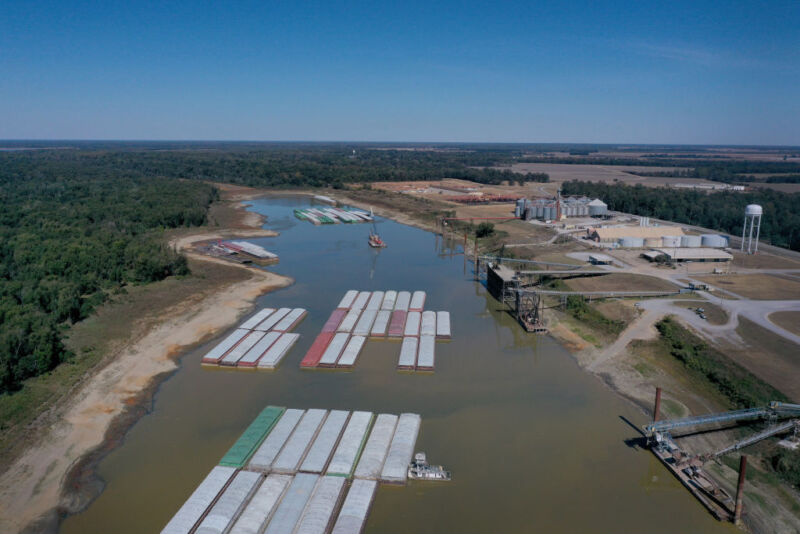Record lows on the Mississippi: How climate change is altering large rivers

Enlarge / In this aerial view, barges, stranded by low water, sit at the Port of Rosedale along the Mississippi River on October 20, 2022, in Rosedale, Mississippi. (credit: Scott Olson / Getty Images)
Rivers are critical corridors that connect cities and ecosystems alike. When drought develops, water levels fall, making river navigation harder and more expensive.
In 2022, water levels in some of the world's largest rivers, including the Rhine in Europe and the Yangtze in China, fell to historically low levels. The Mississippi River fell so low in Memphis, Tennessee, in mid-October that barges were unable to float, requiring dredging and special water releases from upstream reservoirs to keep channels navigable.
Conditions on the lower Mississippi may be easing somewhat, thanks to early winter rains. But as Earth scientists at the University of Memphis, we see this year's dramatic plunge in water levels as a preview of a climate-altered future.